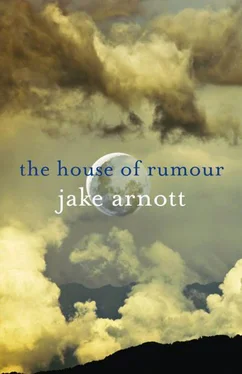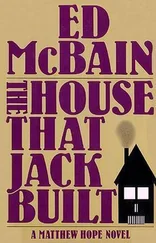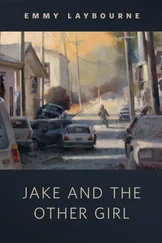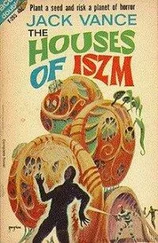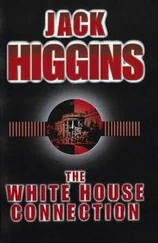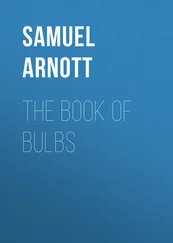And then came the terrible betrayal. Armistice and surrender. The shameful peace in the Hall of Mirrors. So it had all been in vain, he wept, all the sacrifices and privations just for a band of criminals to get their filthy hands on the country. No more Empire. No more Emperor. Revolt and starvation: mutiny in the ports, bread riots in the capital. All reason would now be forgotten. The only hope was to cherish hatred and nurture revenge.
He arrived in Munich the following spring at the height of the Bavarian Soviet. A degenerate utopia had been instituted, a comic opera of anarchists and café intellectuals who staged peace festivals and composed revolutionary hymns. A self-appointed Commissar of Public Instruction ordered an end to the study of history — ‘that enemy of civilisation’; a Governor of Finance declared himself in favour of the abolition of money; the new Foreign Minister had only recently been discharged from a mental institution and tested even the extreme radicalism of his colleagues by declaring war on Switzerland and Württemberg.
But there were meetings of a secret club in private rooms of the Four Seasons Hotel: a mystical society that called for a new dawn of blood and honour. Members had to prove that they had no Jewish ancestry for at least three generations. He was deeply anxious that his appearance might not pass muster: there was open criticism of exotic features, suspicion of dark complexions, even of excessive hairiness. But when he cautiously explained that he was half Greek he was admitted warmly into the fold. It was explained to him that the name of this cultural order, the Thule Society, referred to a Greek name for the ancient Arctic homeland of the Aryans, a Hyperborean Atlantis of godlike men. This was the meaning of his childhood dream! The wondrous infantile prophecy of the cold land of the North, with a holy symbol of a black sun. That he had been born in Alexandria no longer caused him embarrassment. Egypt, declared one of the speakers, had been the home of sacred wisdom, a true religion of hermetic magic that had been corrupted by Judaism. ‘The Jews are the slave-race who stole the ancient knowledge,’ the man insisted contemptuously. ‘The Jews are the excrement of Egypt!’
Other candidates for membership were not granted such hospitality. A young count had his application to the Thule Society rejected when it was discovered that his mother was of Jewish descent. In a rage of disappointment he took a pistol and assassinated the head of the Munich Soviet on the Promenadestrasse. Terrible reprisals followed. Leading figures in the Thule Society were rounded up and executed. Rudi only just avoided being caught himself. He slipped away in the night to join the Freikorps.
These were the men who refused to be demobbed. A generation of angry losers bred by a dishonourable peace. War had taken hold of them and would never let them go. They had forgotten the civilisation that had betrayed them, their minds having been wiped clean with a pure nihilism. ‘Kaput!’ declared one of them, pointing a finger to the side of his head. ‘In November 1918 I blew out my brains. We have already died for our nation. Now we are dead men on leave.’ They had found a comradely love amid the filth and stench of the trenches. With no stomach for the soft life any more, many would never go home. A battle-hardened trooper told Rudi he could find sleep only on a camp bed with rough blankets. ‘I can no longer abide sheets,’ he explained. ‘They remind me of the flag of truce.’ Yet this old soldier was found in a disgraceful attitude of surrender in a hotel room years later on the Night of the Long Knives.
Rudi had learnt to control the temptations of intimacy. The love of men was not to be squandered on base desires. Some of the Freikorps had become so used to action without conscience that they had lost their moral sense. He sought a greater will, a belief in something pure. It was a deep love that he felt, which soared up to the heavens. He found a girlfriend to share the healthy outdoor pursuits that would clear his head. They would go on hikes together through the mountains, to breathe the clean air of the Fatherland.
He found his professor too: Dr Haushofer, a retired general who lectured in geopolitics at Munich University and tutored him in new ideas for a mystical future. The struggle for survival was the struggle for space, the professor declared; space is what the German people needed. It lay to the east, to be conquered as it had been before by the Teutonic crusaders. Rudi dreamt of a space beyond the horizon, reaching upward to the stars. He learnt a new and mournful word: Weltanschauung , the world-view, the destiny of nations. He spent days of study in the lecture theatre, nights of struggle in the beerhalls. He was waiting for the man who would lead them forward.
When he first saw him in a back-room meeting of a minor nationalist party, the man looked unremarkable. He held himself stiffly, with that tense and uncertain authority that one associated with the non-commissioned. His hands were clasped flat against the front of his shabby grey overcoat. But when his turn came to speak, a strange and shocking animus was unleashed. A howl of pain pierced the muttering gloom. His was the song of their suffering, the melody of their anger. He had a rhythm, too, that stirred them, a cadence and gesture that seemed to channel their sad rage. To them this was no mere rhetoric. They had long grown weary of that. No, this was shrill delight, the sweet aria of their fury.
‘I am just a drummer,’ this man said when it became clear that their promised leader had been found. Rudi called him the Tribune and followed him faithfully ever after: even into Landsberg prison after the failed putsch.
This was his time of joyful confinement, as amanuensis to the Tribune while they worked on his great book together. Professor Haushofer helped them forge ideas of sacred geography and political mysticism. Rudi held the memory of this time close to him, even when he would feign forgetfulness of everything else. In all the other places where he had been incarcerated after his flight — the Tower, the country house where he was first held for interrogation, the hospital in Wales, his cell at Nuremberg and now here, in the summerhouse of Speer’s garden at Spandau — Landsberg had been his one prison of happiness.
He remembered the moment when one night the Tribune read to him a passage he had written, describing the life and death of his comrades in the Great War. The Tribune read slowly and haltingly, his face drawn and weary as he struggled to articulate his seemingly boundless concepts. The pauses grew longer and more frequent until he suddenly dropped his head into his hands and sobbed out loud. Then, he rose majestically from this posture of despondence and burst out: ‘Oh, I shall exact a pitiless and terrible revenge on the very first day that I can! I shall take revenge in the name of all whom I shall see then before my eyes!’ It was then that Rudi knew that he would always be beholden to his Tribune. That he loved him.
And it was Rudi who would always remain the closest to him. While others in the party nursed their own petty ambitions, his fulfilled wish was simply to be the Deputy, the Tribune’s loyal second. At rallies it was his duty to introduce him to the crowd and to lead the cheers at the end. At functions he would act as attentive escort. The seeming passivity of his ceremonial role inspired many arch and facile comments. The spiteful murmur of gossip dubbed him ‘Fräulein’, ‘First Lady’, even ‘Black Paula’. Yet he felt aloof from these stupid remarks. Only those who could truly grasp the purity of his devotion had any power to judge his character. Such as his own loving wife, who always understood that the Tribune came first.
Читать дальше
